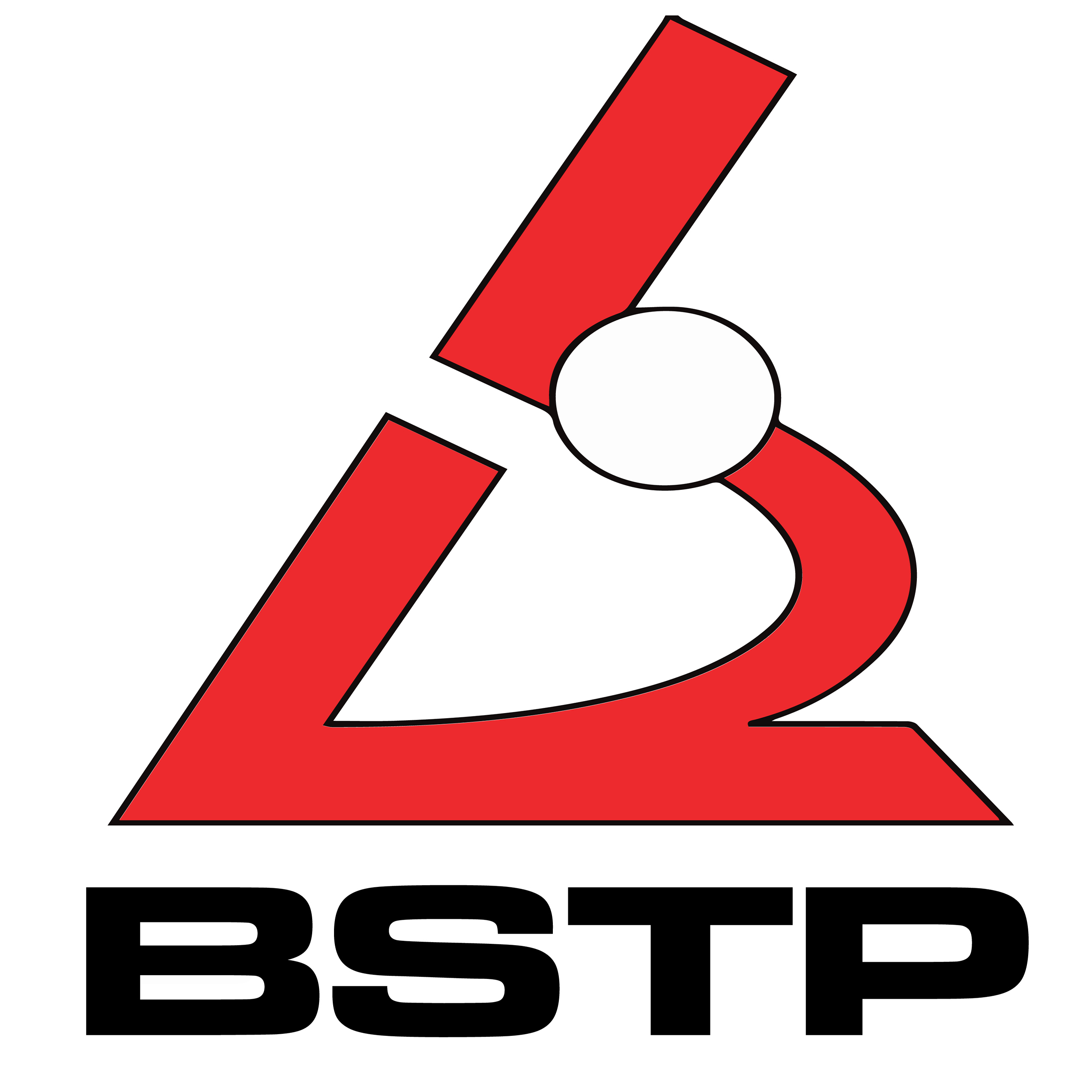
The EMA may collect and further process some personal data of stakeholders and interested parties who submit contributions to the consultations. For more information, see Specific privacy statement for public and targeted consultations.
For more information on the European regulatory system for medicines, please click here (brochure available in all languages).
EMA communication: Human Medicines Highlights Newsletters
The Human Medicines Highlights has been revamped! Our monthly newsletter is now using a new tool, Newsroom, used for all European Commission newsletters.
It is important to subscribe as your current subscription will not be automatically transferred, all you need to do is click here and enter your email address to automatically subscribe to it.
Alternatively <<< CLICK HERE >>> to access the July 2024 issue
Welcome to the June 2024 issue of the Human Medicines Highlights newsletter, the monthly newsletter published by the European Medicines Agency specifically for patients, consumers, healthcare professionals and their representative organisations.
If you have any questions about the Human Medicines Highlights newsletter, or any comments or feedback, please send us an email at public-engagement@ema.europa.eu We would appreciate your feedback!
EMA communication: Veterinary Medicines Highlights
Quarterly news, activities and interviews from EMA Veterinary Medicines Division" Newsletter - June 2024
Welcome to the 17th edition of the Veterinary Medicines newsletter. The Veterinary Antimicrobial Monitoring and Resistance Service is dedicated to supporting the objectives of Regulation (EU) 2019/6, promoting the responsible use of antimicrobials in animals.
You can access the Newsletter by clicking here.
Invitation to the 4th edition of the Veterinary Big Data Stakeholder Forum on 14 October 2024 - please register
The European Medicines Agency will hold the 4th edition of the Veterinary Big Data Stakeholder Forum on 14 October 2024 from 10:00 to 15:00 CEST.
In this edition, the Agency will discuss the role of big data and artificial intelligence in the veterinary regulatory domain and the potential benefits of building a vet health data space. The forum will also report on the veterinary big data work plan and on the EU veterinary data landscape analysis.
Online participation: No limit in the number of participants.
In-person participation: Will be on a first come first served basis with no restriction on the number of attendees per organisation.
The agenda will be published on the event page in late August.
Participants interested in attending the event in person must express their interest via vet-events@ema.europa.eu by 4 October 2024.
For virtual participation (via Webex), please register here by 11 October 2024.
*SAVE THE DATE* - HMA/EMA multi-stakeholder workshop on Artificial Intelligence on 5 November 2024
We are pleased to inform you that the hybrid joint HMA/EMA multi-stakeholder workshop on Artificial Intelligence (AI) will be held on 5 November 2024.
The objectives of the workshop is to provide an update on the state-of-the-art of AI developments with keynote speakers:
- Update stakeholders on:
- policy and legislative environment;
-
- HMA/EMA activities on AI.
- Discuss with stakeholders and experts:
- progress of the multi-annual AI workplan and possible updates;
-
- AI use cases in the medicine lifecycle.
We anticipate space for a broad representation of stakeholders. The registration process and the outlines of the agenda will be available in the coming weeks.
The event will be broadcast live. A video recording will be available after the event.
EMA consultation on revised veterinary guidelines
The European Medicines Agency has published for public consultation the following two revised veterinary guidelines:
- Guideline for the demonstration of efficacy for veterinary medicinal products containing antimicrobial substances – revision 2
- Guideline on the conduct of efficacy studies for intramammary products for use in cattle – revision 3
The proposed revision of the two guidelines consist of changes made in order to align the guidelines to the new definitions and terminology provided by Article 4 of Regulation (EU) 2019/6. In particular, the guidelines have been aligned with the definitions for “prophylaxis” and “metaphylaxis” and the provisions for responsible use of antimicrobials stated in Articles 107(3) and 107(4) of Regulation (EU) 2019/6. The references to the legislation applicable and other scientific guidelines have also been updated.
For each guidance, comments should be provided using this template and sent to vet-guidelines@ema.europa.eu by 31 October 2024.
The EMA may collect and further process some personal data of stakeholders and interested parties who submit contributions to the consultations. For more information, see Specific privacy statement for public and targeted consultations.
Annual Report 2023
It gives me great pleasure to present to you the European Medicines Agency’s annual report for 2023, which provides an overview of the Agency’s activities to protect and promote public and animal health in the European Union (EU).
The redesigned report outlines the highlights in the evaluation and monitoring of human and veterinary medicines and key achievements in EMA’s three major strategic areas in 2023: cancer medicines, data-driven medicine regulation, and transparency and communication. It also contains a selection of key figures and interesting trends that illustrate the broader work of EMA and its impact. The digital version of the report allows users to filter and interact with the data. Its responsive design eases the navigation on all devices, including smartphones and tablets. The report, however, is also available in the traditional, print-ready version in PDF format.
In 2023, EMA recommended the authorisation of 77 medicines for human use, including 39 with a new active substance. Many of these treatments represented significant progress in their therapeutic areas. Two vaccines to protect against lower respiratory tract disease caused by respiratory syncytial virus (RSV) received a positive opinion from EMA’s human medicines committee (CHMP) for approval in the EU. EMA also recommended for approval the first advanced therapy medicinal product using the ground-breaking gene-editing technology known as CRISPR/Cas9 to treat two rare blood disorders (beta thalassemia and severe sickle cell disease). In addition, the Agency adopted two positive opinions for medicines for use in countries outside the EU.
In the area of veterinary medicines, EMA recommended 14 medicines for marketing authorisation. Of these, nine had a new active substance – a threefold increase compared to 2022. Nine were vaccines, including six new biotechnological vaccines.
In 2023, the Agency launched a new initiative, called ‘Cancer Medicines Pathfinder’, to further support the development and approval of cancer medicines which could have a meaningful impact on patient care. This initiative explores how EMA can improve medicines evaluation overall, applying the learnings from the COVID-19 pandemic. The report outlines the progress with the Cancer Medicines Pathfinder and its three pillars: accelerating assessments of medicines, strengthening dialogue with stakeholders, and communicating benefits and risks.
Understanding how we can efficiently analyse and use data to inform medicines regulation was a key priority for the Agency and the European medicines regulatory network in 2023. It is important to ensure that the EU regulatory system can take advantage of the full potential of data. The report highlights EMA’s significant progress around the use of data to drive innovation and regulation of medicines.
Building trust in medicines regulation through transparency and communication is also an important priority for EMA. The report draws attention to the Agency’s strengthened efforts to provide European citizens with timely, accurate and comprehensive information on medicines via EMA’s corporate website, social media channels and traditional media. It also describes how EMA’s communications activities supported the focus areas outlined in the European medicines agencies network strategy to 2025 and the Regulatory Science Strategy to 2025.
The second chapter of the report is dedicated to core statistics and trends illustrating the Agency’s activities in the regulation of medicines. More detailed statistical information about EMA can be found in the Agency’s annual activity report.
I would like to take this opportunity to thank you and your staff for the contributions to EMA’s work. The success and achievements described in this report are only possible because of the strong network that binds all our agencies together in our joint mission to protect public and animal health in the EU.
I hope that you find the annual report informative and helpful. If you have any comments or suggestions on the report, especially on the digital version, please take this survey. Your responses are completely anonymous and will help us improve future editions of the report.
EMA communication: One Health: How EU agencies are tackling environmental and public health together
Today, the European Centre for Disease Prevention and Control (ECDC), the European Chemicals Agency (ECHA), the European Environment Agency (EEA), the European Food Safety Authority (EFSA), and the European Medicines Agency (EMA) published a joint framework for action to strengthen cooperation to support the implementation of the One Health agenda in the European Union (EU).
One Health recognises the complex interplay between human, animal and plant health, food safety, the climate crisis and environmental sustainability. Implementing this approach across different sectors will be key to making the EU and its Member States better equipped to prevent, predict, detect and respond to health threats. It will mitigate the impact and societal cost of such threats, or even prevent their emergence, while also helping to reduce human pressures on the environment and safeguarding key societal needs such as food security and access to clean air and water.
A cross-agency task force will work on implementing the joint framework for action over the next three years (2024-2026), focusing on five strategic objectives: strategic coordination, research coordination, capacity building, stakeholder engagement and joint inter-agency activities. This will ensure that the scientific advice provided by the agencies is increasingly integrated, that the evidence base for One Health is strengthened and that the agencies are able to contribute with a common voice to the One Health agenda in the EU.
In November 2023, the five EU agencies that provide scientific advice on the environment, public health and food safety topics issued a joint statement expressing their shared commitment to supporting the One Health agenda in Europe.
On the occasion of the launch of the joint framework for action, the Executive Directors of the five EU Agencies reinforced their commitment to the One Health approach in a joint video statement.
For more information on One Health, please click here.
EMA’s biennial report on stakeholder engagement activities 2022-2023
We are pleased to share with you the “EMA’s biennial report on stakeholder engagement activities 2022-2023”.
The report outlines the overview of all stakeholder engagement activities between 2022 and 2023. This is the first time that all activities involving the Agency’s key stakeholder groups for which a specific framework of interaction exists (patient and consumer organisations, healthcare professional organisations, academia and EU industry trade organisations) are reported together. The report includes a dedicated section on multi-stakeholder engagement as well as the parallel targeted engagement activities with each stakeholder group.
Stakeholder engagement activities have been further promoted and strengthened over the last two years and after the end of the COVID-19 public health emergency. The COVID-19 public health emergency illustrated the value of early dialogue and interaction between all stakeholders, and showed how open and constructive engagement has the power to improve regulatory outcomes. Stakeholder input is now recognised as an essential element contributing to EMA's and the Network's response to any future public health emergency.
Targeted stakeholder engagement with the four different stakeholder groups is important and will remain as the main tool for dialogue in accordance with the agreed frameworks of interaction; at the same time, early engagement at multi-stakeholder level is adopted whenever possible and brings opportunities to gain an understanding of all stakeholders’ perspectives and mutual learning.
The EU Regulatory Network faces an exciting yet complex environment ahead, full of opportunities such as the reform of EU pharmaceutical legislation, the integration of artificial intelligence into medicine regulation, the fight against antimicrobial resistance and global health threats such as COVID-19 and other infectious diseases. Collaboration and dialogue with stakeholders, transparency, and timely dissemination of information are essential to achieving the best outcome and building trust in the decisions and scientific outputs of the EU Regulatory Network.
We would like to take this opportunity to thank you for your collaboration and we look forward to continuing our partnership.
EMA consultation: VICH GL22(R) Studies to evaluate the safety of residues of veterinary drugs in human food: reproduction testing (Revision 1)
The European Medicines Agency has published for public consultation on “VICH GL22(R) Studies to evaluate the safety of residues of veterinary drugs in human food: reproduction testing (Revision 1)”.
In order to establish the safety of veterinary drug residues in human food, a number of toxicological evaluations are required, including the assessment of any effects on reproduction. The objective of this guideline is to ensure international harmonisation of reproduction testing that is appropriate for the evaluation of effects on reproduction from long-term, low-dose exposures; these effects may be encountered from the presence of veterinary drug residues in food.
Comments should be provided using this template and sent to vet-guideline@ema.europa.eu by 31 July 2024.
The EMA may collect and further process some personal data of stakeholders and interested parties who submit contributions to the consultations. For more information, see Specific privacy statement for public and targeted consultations.
EMA communication: Multi-agency report highlights importance of reducing antibiotic use
Countries that have decreased their consumption of antibiotics in both animals and humans have seen a reduction in antibiotic-resistant bacteria. This is according to the fourth joint report on the integrated analysis of the consumption of antimicrobial agents and occurrence of antimicrobial resistance (AMR) in bacteria from humans and food-producing animals (JIACRA IV), published by the European Centre for Disease Prevention and Control (ECDC), the European Food Safety Authority (EFSA), and the European Medicines Agency (EMA).
Taking a One Health approach, which recognises the connection between the health of people and animals, the report presents data primarily collected between 2019 and 2021 on antibiotic consumption and AMR in Europe.
Full details about the project and the 4th joint report are available here.
EMA communication: Guideline on quality, safety and efficacy of veterinary medicinal products specifically designed for phage therapy
The Committee for Veterinary Medicinal Products (CVMP) adopted a guideline on quality, safety and efficacy of veterinary medicinal products specifically designed for phage therapy at its October 2023 meeting.
Phage therapy is a potential alternative to combat bacterial infections, or a complement to antibiotic therapy. Some studies show that phage-antibiotic synergies are characterised by a reduced emergence of antibiotic and/or phage resistance in bacteria.
Regulation (EU) 2019/6 states that veterinary medicinal products specifically designed for phage therapy are considered novel therapies and, as such, the Novel Therapies and Technologies Working Party (NTWP) developed a guideline to address the regulatory, technical and scientific requirements applicable to veterinary medicinal products specifically designed for phage therapy.
This pioneering document within the European regulatory framework aims primarily to facilitate and to guide the authorisation path of bacteriophage products. Additionally, by providing a well-defined regulatory pathway, this guideline seeks to encourage the development of these innovative therapies, offering the necessary support to pharmaceutical companies to successfully bring their phage therapy products to the European market.
The newly adopted guideline represents a fundamental step towards the promotion of animal and human health as envisaged by the One Health approach.
For more details on this topic, please click here.
EMA communication: 3Rs Working Party meeting report on use of animals in the regulatory testing of medicines
The EMA has a long-standing commitment towards the application of the principles of Replacement, Reduction and Refinement (3Rs) in regulatory testing of human and veterinary medicinal products (HMPs and VMPs). This commitment is driven by the requirements as per Directive 2010/63/EU, as well as by the crucial need for better tools to predict quality, safety and efficacy of new medicinal products.
The newly established 3Rs Working Party (3RsWP) is a joint working party of the Committee for Medicinal Products for Human Use (CHMP) and the Committee for Veterinary Medicinal Products (CVMP). It advises these committees on all matters concerning the use of animals in the regulatory testing of medicines, with particular focus on the application of the so-called 3Rs principles - replace, reduce and refine.
In February 2023, the 3RsWP held a two-day plenary meeting to showcase the Agency's commitment to ensuring the implementation of 3Rs principles in the development and evaluation of human and veterinary medicinal products.
The aim of the public session was to present the 3RsWP work plan and to give an opportunity to stakeholders to comment and provide their views on the working party's activities.
We are pleased to share with you the meeting report, which shows an overview of the input received from stakeholders during the meeting and the future activities of the Working Parties.
EMA communication: Progress with EU-US mutual recognition agreement for inspections for veterinary medicines
On 31 May 2023, the European Union and the United States have made important progress towards enabling mutual recognition of inspections of manufacturing facilities of certain veterinary products. The Food and Drug Administration (FDA) has recognised the capability of 16 EU Member States to carry out good manufacturing practice (GMP) inspections for certain veterinary products at a level equivalent to the US. At the same time, the EU also recognised the FDA as an equivalent authority for GMP inspections of sites manufacturing veterinary medicines.
This follows the extension of the scope of the mutual recognition agreement (MRA) between the EU and the US to veterinary products on 11 May 2023.
The Member States whose GMP inspections for veterinary medicines are recognised by the FDA are Austria, Belgium, Bulgaria, Denmark, Estonia, Finland, France, Greece, Hungary, Ireland, Luxembourg, Netherlands, Poland, Portugal, Slovenia and Spain.
Teams from the European Commission (EC), EU national competent authorities (NCAs), EMA and the FDA continue working closely to ensure the timely assessment of the remaining 11 competent authorities of Member States now that the difficulties brought about by the COVID-19 pandemic have been largely removed.
The MRA allows regulatory authorities in the EU and the US to rely on the results of inspections of manufacturing sites for veterinary products conducted in the respective territories of the parties. The aim is to strengthen reliance on the inspection expertise and resources between EU and US regulators. From now on, the FDA should rely on inspections conducted by these 16 Member States also for veterinary products and EU Member States and EMA will rely on inspections conducted by the FDA.
Benefits of the MRA for EU authorities and the FDA include:
- the ability to focus inspection resources on other parts of the world where active pharmaceutical ingredients and medicines for the EU or US markets are manufactured;
- prioritising inspections of medicine manufacturing sites for higher-risk cases;
- reassuring users that they can rely on the quality, safety and efficacy of all medicines, no matter where they have been manufactured;
- improving the regulators’ ability to identify and address potential problems at manufacturing sites before they become a public health risk;
- reducing the administrative burden and costs from duplicative inspections for pharmaceutical manufacturers, including smaller producers.
- reliance on inspections conducted by the MRA partner waives the need for inspections during assessment of a marketing authorisation application or variation and hence contributes to faster access to medicines.
For more details please click here.
EMA communication: Reducing risks to human and animal health from exposure to N-methyl pyrrolidone in veterinary medicines
On 8 December 2022, EMA’s veterinary medicines committee, the CVMP, recommended new measures to reduce the risks from exposure to the excipient N-methyl pyrrolidone (NMP) for women who may handle NMP-containing veterinary medicines and animals that are given these medicines. The recommendations address inconsistencies in the product information of veterinary medicines containing NMP, which are marketed in many European Union (EU) Member States. For more details on the CVMP recommendations, please consult the procedure page.
NMP is an excipient used in some veterinary medicines that is classified as a teratogen (a substance that can cause birth defects following exposure during pregnancy) in laboratory animals. There is therefore the possibility that NMP could cause birth defects in children of women who handle or come into contact with NMP-containing medicines during their pregnancy, and in the offspring of animals given these medicines.
More than 1,100 veterinary medicines containing the excipient NMP are available in the EU under various trade names and in different formulations, for use mainly in companion animals and large farm animals. These medicines are available as injections, solutions for infusion, spot-on and pour-on products, shampoos, sheep dips, sprays and concentrates for oral solutions for use in the drinking water of animals or solutions for fish treatment.
The review of veterinary medicines containing NMP is the first referral under Article 82 of Regulation (EU) 2019/6 which was introduced as part of the new EU veterinary medicinal products regulation. The CVMP recommendations were sent to the European Commission, which issued an EU-wide legally binding decision on 28 March 2023.
This communication and related content are published here.
EMA communication: Big data use for public health: publication of Big Data Steering Group workplan 2022 - 2025
The Big Data Steering Group set up by EMA and the Heads of Medicines Agencies (HMA) has published its third workplan that sets key actions to be delivered between 2022–2025.
The new workplan will allow to further enhance the efficient integration of data analysis into the evaluation of medicinal products by regulators. Using novel technologies and the evidence generated from big data will benefit public health by accelerating medicine development, improving treatment outcomes and facilitating earlier patient access to new treatments.
The former Big Data Task Force carried out a thorough assessment of the challenges and opportunities posed by big data in medicines regulation, which culminated in 2020 in the publication of priority recommendations for regulators on the best approaches to use and generate data. The joint HMA-EMA Big Data Workplan 2022–2025 follows the key recommendations and includes mainly activities related to medicines for human use. However, the scope of some activities covers veterinary aspects, and a separate section in the workplan is fully dedicated to veterinary medicines.
For more details on the workplan’s deliverables and timelines, please click here.
New EMA video on veterinary medicines
We are pleased to inform you that EMA has launched a video to promote the Veterinary Medicines information website.
Launched in January, the website is a one-stop shop for livestock farmers, pet owners and veterinarians to access up-to-date and reliable information on all authorised veterinary medicines in the EU, enabling them to make informed decisions to protect the health of their animals. Thanks to this new platform, everyone can now easily find out where medicines for animals are authorised and available across Europe. The availability of safety information on these medicines is also highlighted with a reference to the veterinary database.
Share, comment or like our posts on LinkedIn and Twitter and on the joint EU agencies Instagram account (one_healthenv_eu).
We are pleased to inform you that the EMA has published its academia collaboration matrix action plan that sets out how the Agency intends to create closer ties with academics and researchers in the next two and a half years.
It lists actions in five areas identified in EMA's Regulatory Science Strategy to 2025:
- Regulatory science and partnerships;
- Innovation and support to academia;
- Communication;
- Events strategy;
- Trainings.
Consult the action plan:
- https://www.ema.europa.eu/en/academia
- https://www.ema.europa.eu/en/partners-networks/academia#framework-for-collaboration-section
To learn more about how EMA interacts with academia, please click here.
The EMA is pleased to inform you about the decision to waive all fees for scientific advice for academic researchers developing orphan medicines, to further encourage the development of treatments for rare diseases.
The academic sector plays an important role in the development of innovative medicines. Their scientific research is often at the source of novel methodologies and innovative medicines with a potential to benefit patients with rare diseases.
Early interaction with EU regulators is important for academia to understand the regulatory requirements and allow the generation of robust evidence needed to establish the medicines’ benefits and risks. This helps them to navigate the regulatory process and ultimately to translate their discoveries into authorised, patient-focused medicines.
Eligible applicants will include public or private higher education establishments awarding academic degrees, public or private non-profit research organisations whose primary mission is to pursue research, and international European interest organisations. These entities should not be financed or managed by private for-profit organisations in the pharmaceutical sector or have concluded any agreement with pharmaceutical companies concerning their sponsorship or participation to a specific research project for which a fee exemption is sought.
Please check the news item on the EMA’s website, or view the dedicated posts on Twitter and LinkedIn for more information regarding the academic fee waiver.








